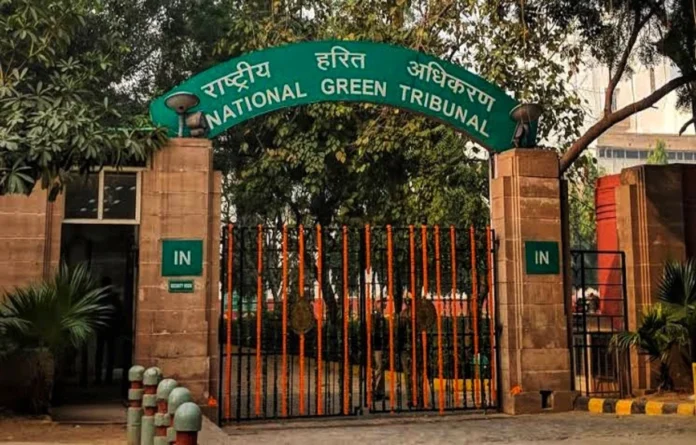The National Green Tribunal (NGT) has taken suo motu cognizance of the matter relating to the July 16 landslide in coastal Karnataka’s Uttara Kannada district.
The petition is registered suo motu on the basis of the news item dated 02.08.2024.
As per the article, a preliminary report by the Geological Survey of India has listed “unscientific” construction of National Highway (NH) 66 by the National Highway Authority of India (NHAI), combined with heavy rainfall in a short span of time, among factors responsible for the disaster.
The news item states that a massive landslide brought down a torrent of mud and debris at Shirur village in Akola, destroying the Karwar-Mangaluru portion of the 1,640-km highway, which connects Maharashtra’s Panvel with Kanyakumari in Tamil Nadu. Besides damage to the highway, four houses and two high-tension power transmission towers at Akola were destroyed, and a tea stall and two trucks got washed away in the landslide. Eight bodies have been recovered so far and search operations have been on for nearly two weeks to look for the remains of three more suspected victims.
The news item quotes the GSI report, which states that the natural drainage flows were disturbed when slope modifications were carried out to build the highway. The steep gradient of the cut slope, presence of highly weathered rock, thick debris, saturation due to rainfall and lack of toe support (the distance between the edge of the highway and the beginning of the slope, a key factor while designing stable slopes along highways) are the primary causative factors of the debris flow. Intense rainfall acted as the trigger for the landslide. The high relief and overburden material in the hill slope suggest that retrogression of the slide is probable during prolonged rainfall.
The news item further alleges that the authorities have in the past been alerted by scientists and other experts about the “unscientific” widening of roads and vertical cutting of hills at this stretch. Furthermore, it is claimed that the Uttara Kannada’s coastal areas and ghats receive a high 3,500-4,000 mm of rainfall per annum, making it a challenge to execute infrastructure projects. Given these difficulties, it is imperative for government agencies to assess terrain conditions before executing road projects.
The above matter indicated Bench violation of the provisions of the Environment Protection Act, 1986.
The news item raises substantial issue relating to compliance of the environmental norms and implementation of the provisions of scheduled enactment.
“Power of the Tribunal to take up the matter in suo-motu exercise of power has been recognized by the Hon’ble Supreme Court in the matter of “Municipal Corporation of Greater Mumbai vs. Ankita Sinha & Ors.” reported in 2021 SCC Online SC 897.”
Hence, Principal Bench of Justice Prakash Shrivastava, Justice Arun Kumar Tyagi and Dr. A. Senthil Vel impleaded the following as respondents in the matter:
i. National Highway Authority of India, Through its Secretary .
ii. Geological Survey of India, Through its Director General.
iii. Ministry of Environment and Forest.
iv. District Magistrate, Uttar Kannada.
The Bench issued notice to the Respondents.
Since the matter relates to the Southern Zonal Bench, Chennai, therefore, the Bench transferred the matter to the Southern Zonal Bench for appropriate further action. Office is directed by the NGT to transfer the original record to the Southern Zonal Bench and the matter is listed on 30.09.2024.


